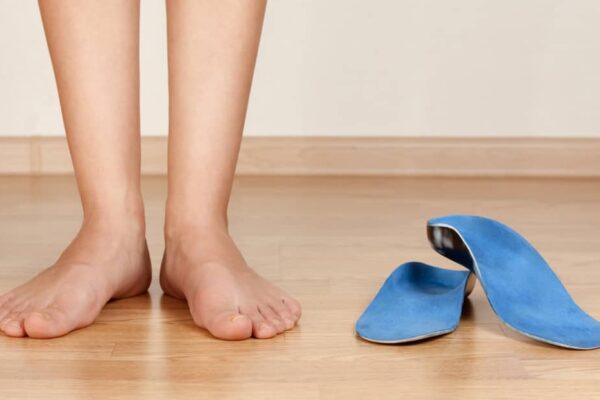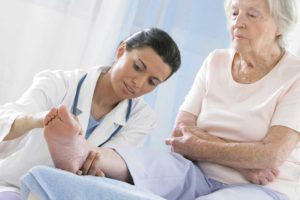What is Podiatry?
Podiatrists have been trained to prevent, diagnose, treat and rehabilitate abnormal conditions of the feet and lower limbs. They also prevent and correct deformity, keep people mobile and active, relieve pain and treat infections.
They can advise you on how to look after your feet and what type of shoes to wear. They can also treat and alleviate day-to-day foot problems, including:
- Toenail problems such as ingrown toenails or fungal toenails.
- Corns and calluses
- Verrucas
- Atheletes foot
- Dry and cracked heels
- Flat feet
- Bunions
- Heel pain
- Painful feet
- Gout
Podiatrists are the experts on assessing how you walk and whether there is some reason which predisposes you to pain in the foot, heel or even hip and knee. This can often be corrected with made to measure orthotics, which support the arch and correct over or under pronation of the foot.
The inner soles are worn in your shoes to realign your foot, and can be moved to other shoes easily.
Podiatrists can also help with more complex foot problems including preventing, diagnosing and treating injuries related to sports and/or exercise.
The session is usually completely painless (even pleasant) and takes 30 to 60 minutes.
Can I get podiatry on the NHS?
Since April 1 2013, clinical commissioning groups (CCGs) were given the power to decide what Footcare services to commission for their local area.
Guidance by the National Institute for Health and Care Excellence (NICE) recommends that Footcare services related to long-term conditions such as diabetes, peripheral arterial disease and rheumatoid arthritis should be available on the NHS.
However, there is no NICE guidance for foot health provision that is not associated with a long-term condition. This means that each individual CCG will decide on what to make available on the NHS, depending on local need.
If your condition is not affecting your health or mobility you are unlikely to be eligible for NHS podiatry.
If you want NHS podiatry treatment, contact your GP to see if you qualify.
Otherwise there are plenty that you can see privately. Check they are registered with HCPC and one of these associations
- The Society of Chiropodists and Podiatrists
- The Institute of Chiropodists and Podiatrists
- British Chiropody and Podiatry Association


